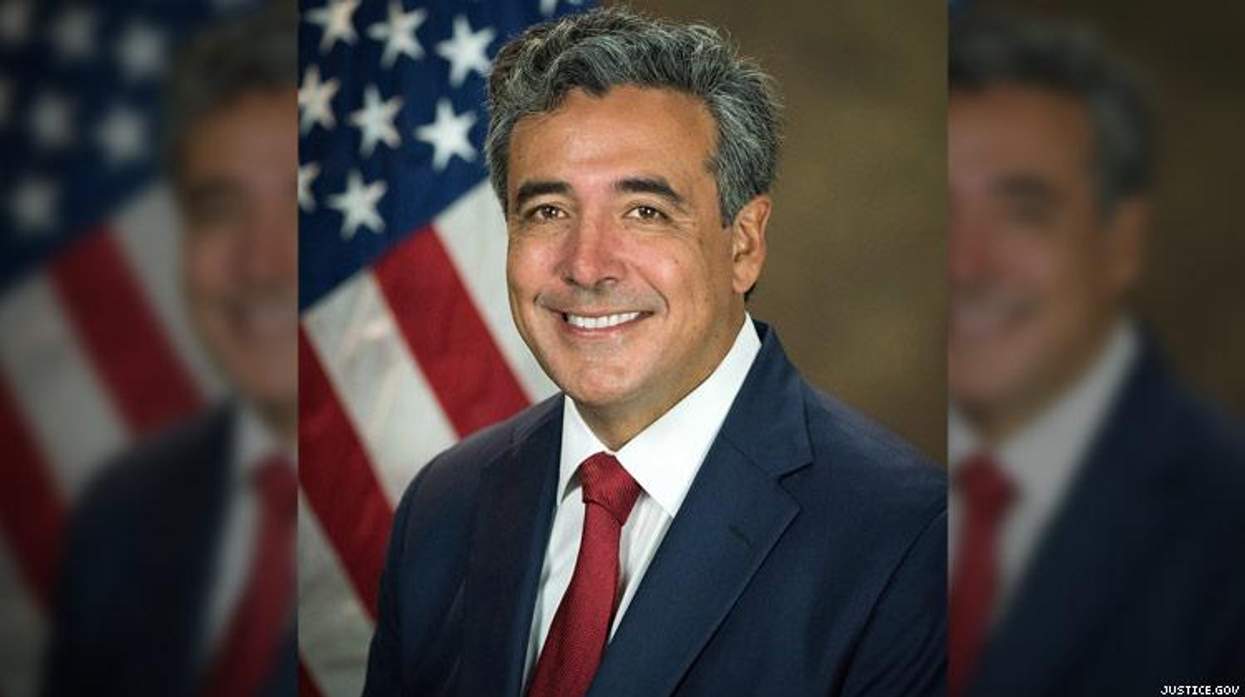Donald Trump's administration is making yet more anti-transgender moves, now telling the Supreme Court that it's OK to discriminate on the basis of gender identity.
Solicitor General Noel Francisco, whose position is part of the Department of Justice, submitted a brief to that effect with the court Wednesday, Bloomberg News reports.
The high court is deciding whether to hear a case involving a Michigan funeral home employee, Aimee Stephens, who was fired because she is transgender. In March, a three-judge panel of the U.S. Court of Appeals for the Sixth Circuit ruled that not only is discrimination against trans people sex discrimination, which is banned by federal law, but that Stephens's employer, R.G. & G.R. Harris Funeral Homes, did not deserve an exemption from the law because of its owner's religious beliefs regarding gender.
The appeals court reversed the trial court's ruling, which had found in favor of an exemption, and sent the case back to the trial court for further consideration. But the company, represented by the anti-LGBTQ Alliance Defending Freedom, wants the Supreme Court to hear it instead, and it contends the appeals court's ruling is wrong.
The Trump administration, as represented by Francisco, agrees. "The court of appeals misread the statute and this Court's decisions in concluding that Title VII encompasses discrimination on the basis of gender identity," Francisco said in the brief. Title VII is the section of the Civil Rights Act of 1964 that bans sex discrimination.
Another agency of the federal government, the Equal Employment Opportunity Commission, which is quasi-independent, had sued the funeral home operator on Stephens' behalf. The Justice Department, however, has the sole authority to represent the federal government before the Supreme Court.
Francisco represented the federal government in the Masterpiece Cakeshop case, in which the Colorado Civil Rights Commission and that state's courts found that a bakery owner who refused to create a wedding cake for a same-sex couple violated the state's antidiscrimination law. Francisco argued for the baker, saying the baker had the right of refusal based on his religious beliefs and freedom of expression. The baker won a qualified victory at the Supreme Court, which said the commission had shown insufficient respect for his religious beliefs, but it did not create a broad right to discriminate.
The Justice Department has also argued that Title VII does not ban sexual orientation discrimination. The Supreme Court has been asked to review two cases involving men who say they were fired for being gay, one a New York skydiving instructor, the other a Georgia social worker. As with Stephens's case, the justices have yet to say if they will hear these.
Francisco's brief is in keeping with other recent anti-transgender moves by the Trump administration. These include a memo arguing that another federal law against sex discrimination, Title IX of the Education Amendments of 1972, does not apply to gender identity; indeed, the memo proposes defining gender as binary and fixed at birth, which would endanger rights and recognition for transgender, intersex, and gender-nonconforming people. U.S. diplomats are also arguing for an exclusionary approach to gender at the United Nations.




































































Charlie Kirk DID say stoning gay people was the 'perfect law' — and these other heinous quotes